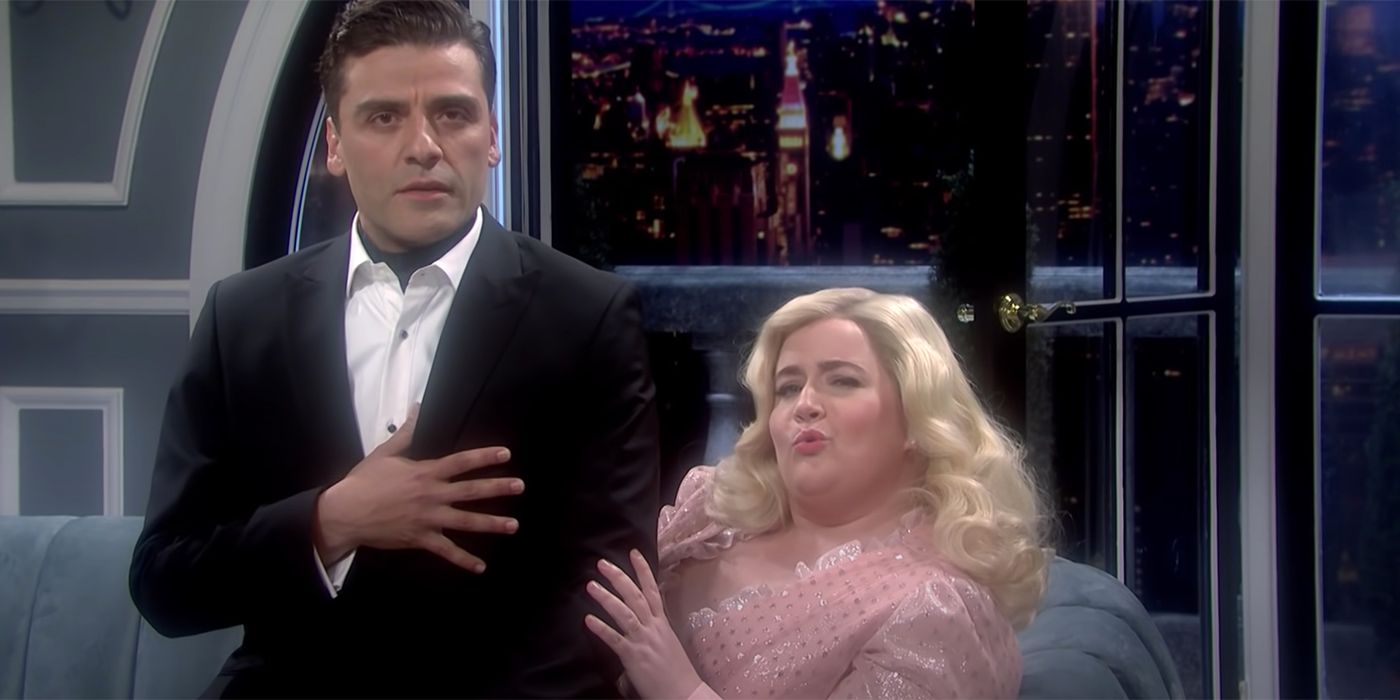Over her tenure on Saturday Night Live, Aidy Bryant has played hundreds if not thousands of characters. Many of them, as she describes, have been teachers, principals, mothers, or "women named Diane, or Susan, or Teacher." But now, it's time for Bryant to play the character of her choosing. This is the premise of "Aidy's Dream," where Bryant gets to stretch her acting chops and play a character she wouldn't normally play, as she explains to the audience at the beginning of the sketch. Also featuring host Oscar Isaac, this sketch that intends to comically portray a poorly written meta-sketch ultimately feels a little sad.
The sketch that Bryant presents in "Aidy's Dream" is entitled "The Sexual Woman," which she has convinced Isaac is her famous recurring character. A character that may have usually been played by Cecily Strong or Heidi Gardner is now being played by Bryant. Isaac is head over heels for Bryant, calling her "the most desired woman in the world."
The actual meta-sketch "The Sexual Woman" has purposefully clunky dialogue and awkwardness, like when Isaac asks to get closer, and Bryant responds, "bring your head and body that look like that closer to mine." Isaac tells Bryant that he sees her "sexually" and not as someone who would "run a school" — a comment on the characters Bryant usually plays. Bryant also says her characters '"famous" catchphrase: "Hey! Get your fat ass on my lap, bitch!" which certainly takes Isaac by surprise. Isaac is also surprised to find out he is playing himself in this sketch, which Bryant plays off as a mistake by the writers. The sketch ends with Isaac putting his "fat ass" on Bryant's lap before a title card for "The Sexual Woman."
While this meta-sketch is supposed to be funny because of its purposefully clunky dialogue and the audience's understanding that it is a fake sketch, it doesn't entirely work. This is primarily due to the fact that the sketch is also a commentary on the types of characters Bryant usually plays, implying that she is restricted by how she looks. While certainly true, this argument colors the whole sketch and makes every odd line feel a bit sad, like even in Bryant's fantasy, she doesn't get a well-written character. Instead of laughs, you will more likely be more cognizant of the types of characters each cast members play and how societal norms and systemic issues hold them back.
You can watch the sketch here:


